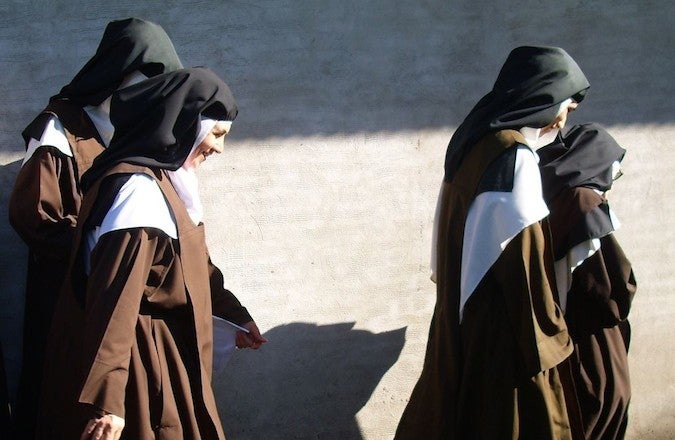Funding problems are still holding up the relocation of a Carmelite convent from the grounds of the former Auschwitz death camp in southeastern Poland, a senior Vatican official said here this week.
Archbishop Edward Cassidy, president of the Vatican Commission for Religious Relations With the Jews, could not say when the interfaith prayer and education center that is to house the convent would be completed.
“The building is well advanced. Financial contributions have come from outside, including from the holy father,” Cassidy told British Jewish leaders during a conference here. “But it is a constant struggle to reach completion,” he added.
The Vatican is reported to have contributed $144,000 toward the project.
The presence of Carmelite nuns at Auschwitz, where an estimated 1.4 million Jews perished during the Holocaust, outraged Jewish opinion and led to sorely strained relations between Catholics and Jews, which have only recently been repaired.
As long ago as February 1987, the European Catholic cardinals pledged to world Jewish leaders that the convent would be relocated within three years. That deadline was not met.
But construction began last year on a new complex, across the road and out of sight of Auschwitz, that will contain a cloistered convent.
It is supposed to be completed next year. Bishop Henryk Muszynski, chairman of the Polish Episcopal Commission for Dialogue With the Jews, said during a visit to the United States last month that the first building of the complex would be dedicated in May or June.
But Cassidy could give no date.
And in New York, Rabbi Leon Klenicki, who recently returned from a visit to the Auschwitz site, said the nuns “will move into their new cloister a year and a half from now.”
‘IT TAKES YEARS AND YEARS’
The structure of the convent has been completed, though the interior remains unfinished, said Klenicki, who is director of interfaith affairs at the Anti-Defamation League of B’nai B’rith.
When asked why it would take 18 months to put down floors and install fixtures, Klenicki replied, “Poland is not like America. It takes years and years to get things done.”
Cassidy was also challenged by Hayim Pinner, secretary-general of the Board of Deputies of British Jews, over the Vatican’s refusal to establish diplomatic relations with Israel.
He replied that certain questions had to be resolved, including the status of Christianity in Israel before formal relations could be established.
He said speculation that Pope John Paul II would visit Jerusalem soon was premature.
Cassidy sought to calm Jewish fears that the Decade of Evangelism proclaimed by the Vatican is aimed at converting Jews. Its purpose is “the renewal of our own communities that have wandered away from their Christian roots,” he said.
Cassidy stressed that Catholic attitudes toward the Jews have been steadily improving since the “Nostra Aetate” document on reconciliation was issued in 1965.
(JTA staff writer Debra Nussbaum Cohen in New York contributed to this report.)
JTA has documented Jewish history in real-time for over a century. Keep our journalism strong by joining us in supporting independent, award-winning reporting.
The Archive of the Jewish Telegraphic Agency includes articles published from 1923 to 2008. Archive stories reflect the journalistic standards and practices of the time they were published.




